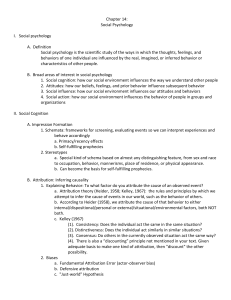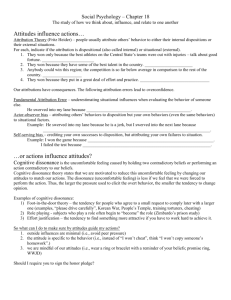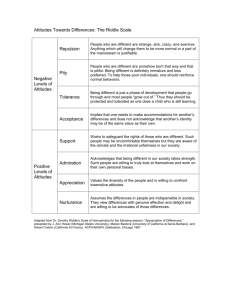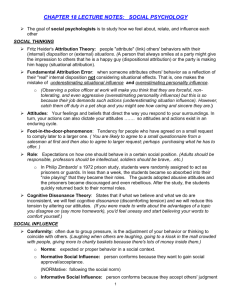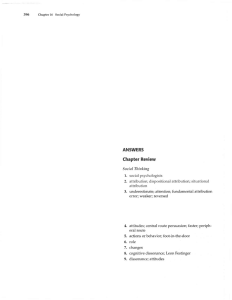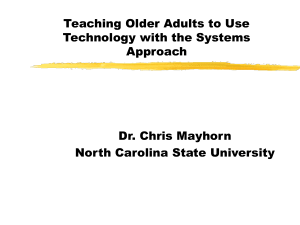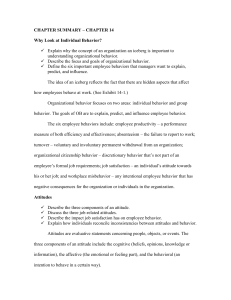Module 56 Social Thinking Module Preview Social psychology is the
advertisement
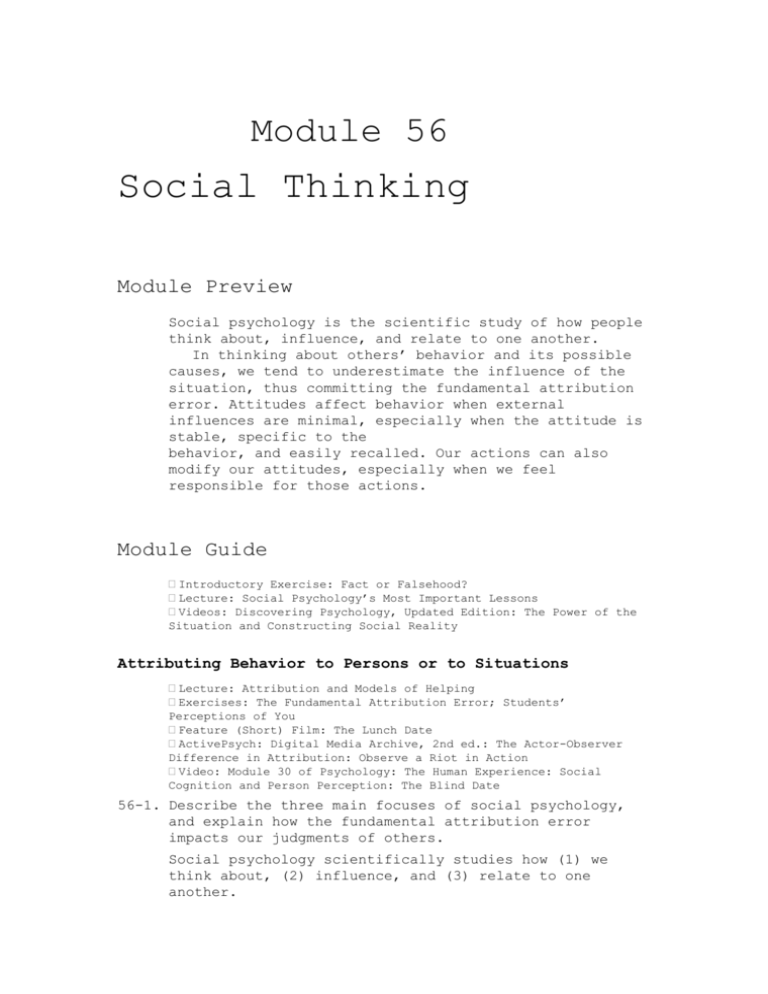
Module 56 Social Thinking Module Preview Social psychology is the scientific study of how people think about, influence, and relate to one another. In thinking about others’ behavior and its possible causes, we tend to underestimate the influence of the situation, thus committing the fundamental attribution error. Attitudes affect behavior when external influences are minimal, especially when the attitude is stable, specific to the behavior, and easily recalled. Our actions can also modify our attitudes, especially when we feel responsible for those actions. Module Guide Introductory Exercise: Fact or Falsehood? Lecture: Social Psychology’s Most Important Lessons Videos: Discovering Psychology, Updated Edition: The Power of the Situation and Constructing Social Reality Attributing Behavior to Persons or to Situations Lecture: Attribution and Models of Helping Exercises: The Fundamental Attribution Error; Students’ Perceptions of You Feature (Short) Film: The Lunch Date ActivePsych: Digital Media Archive, 2nd ed.: The Actor-Observer Difference in Attribution: Observe a Riot in Action Video: Module 30 of Psychology: The Human Experience: Social Cognition and Person Perception: The Blind Date 56-1. Describe the three main focuses of social psychology, and explain how the fundamental attribution error impacts our judgments of others. Social psychology scientifically studies how (1) we think about, (2) influence, and (3) relate to one another. Attribution theory states that we tend to give a causal explanation for someone’s behavior. We may explain people’s behavior in terms of internal dispositions or in terms of the external situation. For example, a teacher may explain a child’s hostility in terms of an aggressive personality or as a reaction to stress or abuse. The fundamental attribution error—our tendency to overestimate personality influences and to underestimate situational influences—can lead us to unwarranted conclusions about others’ personality traits. For example, we may blame the poor and the unemployed for their own misfortune. Attitudes and Actions Lectures: The Looking Glass Effect; The Theory of Reasoned Action; Actions Influence Attitudes; The Justification of Effort; SelfPersuasion; Revisiting the Stanford Prison Experiment; Abu Ghraib Prison and Social Psychology Exercise: Introducing Cognitive Dissonance Theory ActivePsych: Digital Media Archive, 2nd ed.: Zimbardo’s Stanford Prison Experiment Instructor Video Tool Kit: The Stanford Prison Experiment: The Power of the Situation 56-2. Define attitude, and explain how attitudes and actions affect each other. Attitudes are feelings, often influenced by our beliefs, that predispose us to respond in a particular way to objects, people, and events. For example, we may feel dislike for a person because we believe he or she is mean, and, as a result, act unfriendly toward that person. Attitudes often predict our behavior. Recently, public opinion about the reality and dangers of global change have undergone change with effects on both personal behaviors and public policies. Many campuses and corporations are now “going green.” Central route persuasion occurs when interested people focus on the arguments and respond with favorable thoughts. Peripheral route persuasion occurs when people are influenced by incidental cues, such as a speaker’s attractiveness. Attitudes affect actions when external influences on what we say and do are minimal, and when the attitude is stable, specific to the behavior, and easily recalled. Attitudes also follow behavior. For example, the footin-the-door phenomenon is the tendency for people who first agree to a small request to comply later with a larger request. Because doing becomes believing, a trivial act makes the next act easier. Similarly, the behaviors associated with a new role may initially feel artificial. However, they soon seem to reflect our true self as we adopt attitudes in keeping with our roles. Cognitive dissonance theory, proposed by Leon Festinger, argues that people feel discomfort when their actions conflict with their attitudes; they reduce the discomfort by bringing their attitudes more in line with their actions.


